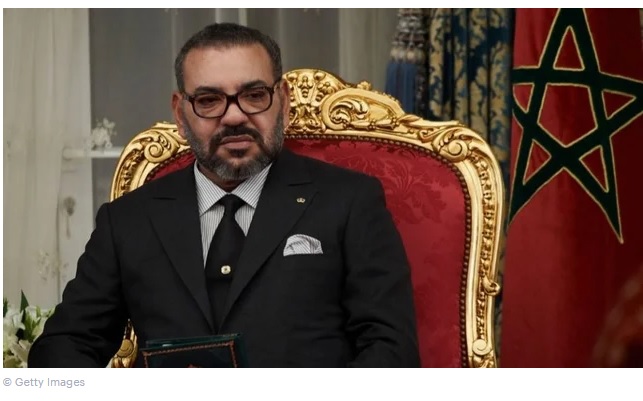BY EDWARD M. GABRIEL, OPINION CONTRIBUTOR — THE VIEWS EXPRESSED BY CONTRIBUTORS ARE THEIR OWN AND NOT THE VIEW OF THE HILL
Morocco’s decision not to normalize relations with Israel following the agreement between Israel and the United Arab Emirates (UAE) likely came as a result of two overriding considerations. First, King Mohammed VI and the country consistently have supported a peace agreement between Israel and Palestine, and may have determined that a Moroccan agreement with Israel would damage the prospects for that. Second, acting during an election year in the United States was probably a deterrent for Morocco to move too hastily.
The king has made his viewpoint clear over the past 20 years with regard to Palestine, and used his position as chairman of the Al-Quds (Jerusalem) Committee of the Organization of Islamic Conference (OIC) to assert strong support for a Palestinian state. At the same time, he has expressed support for warm and full relations with Israel, and seems perfectly situated to become a peace partner with Israel, given that Moroccans are the second largest ethnic group in Israel, after Russians.
Normalizing relations, however, had to be balanced against statements to which the king has committed over the years in his support for Palestine. In November 2019, he warned that “the continuing Israeli practices in violation of international legitimacy and international humanitarian law in the occupied Palestinian territories fuel tension, violence, instability and sow the seeds of religious conflict and hatred.” Following those comments, Moroccan diplomats reaffirmed the country’s unwavering support for Palestine.
In February of this year, a message from King Mohammed, conveyed to Palestinian leader Mahmoud Abbas by Moroccan Foreign Minister Nasser Bourita, reaffirmed Morocco’s support of the Palestinian cause.
Since the days of King Hassan II, Moroccans have been encouraged to give to the poor in Palestine and have inspired a Moroccan population deeply supportive of a Palestinian homeland. King Mohammed would have a hefty price to pay if he didn’t first extract meaningful concessions for the Palestinians before making any agreement with Israel.
Remember also that the king opposed Gulf countries’ pressure on Morocco to support their sanction of Qatar and the war in Yemen. Such stands took courage for a country so dependent on economic development from the Gulf. Analysts who predicted that Morocco would be next to sign a peace accord with Israel evidently did not understand the king’s strong moral commitment with regard to Palestine.
The other consideration for normalizing relations with Israel was timing. There’s a joke in Morocco that goes, “I’m not sure who the next U.S. president will be, but I do know who the king’s best friend will be.” Morocco had avoided making partisan gestures during U.S. election cycles, dating to 1777 when Sultan Mohammed III recognized the independence of the United States, becoming the first country to recognize the U.S. and one of the first to sign a treaty of peace and friendship between the two nations. Every monarch since has been careful to avoid the appearance of taking sides in U.S. politics. Morocco understood then that if it didn’t come early to the peace party it would have less to gain from it.
And there are obvious reasons today for Morocco to move quickly toward normalization with Israel, given cultural and family ties. Many Morocco-watchers believe that when a serious negotiation between the parties includes concessions for a contiguous state of Palestine, based upon 1967 borders, with Jerusalem as a capital of both states, and when Morocco is not playing into U.S. election year politics, the king will move to normalize relations.
Moroccan and Israeli citizens know that when that day arrives, their new relationship will be a peaceful, warm and genuine one.
Edward M. Gabriel is the former U.S. ambassador to Morocco (1997-2001) and president of the American Task Force for Lebanon.







